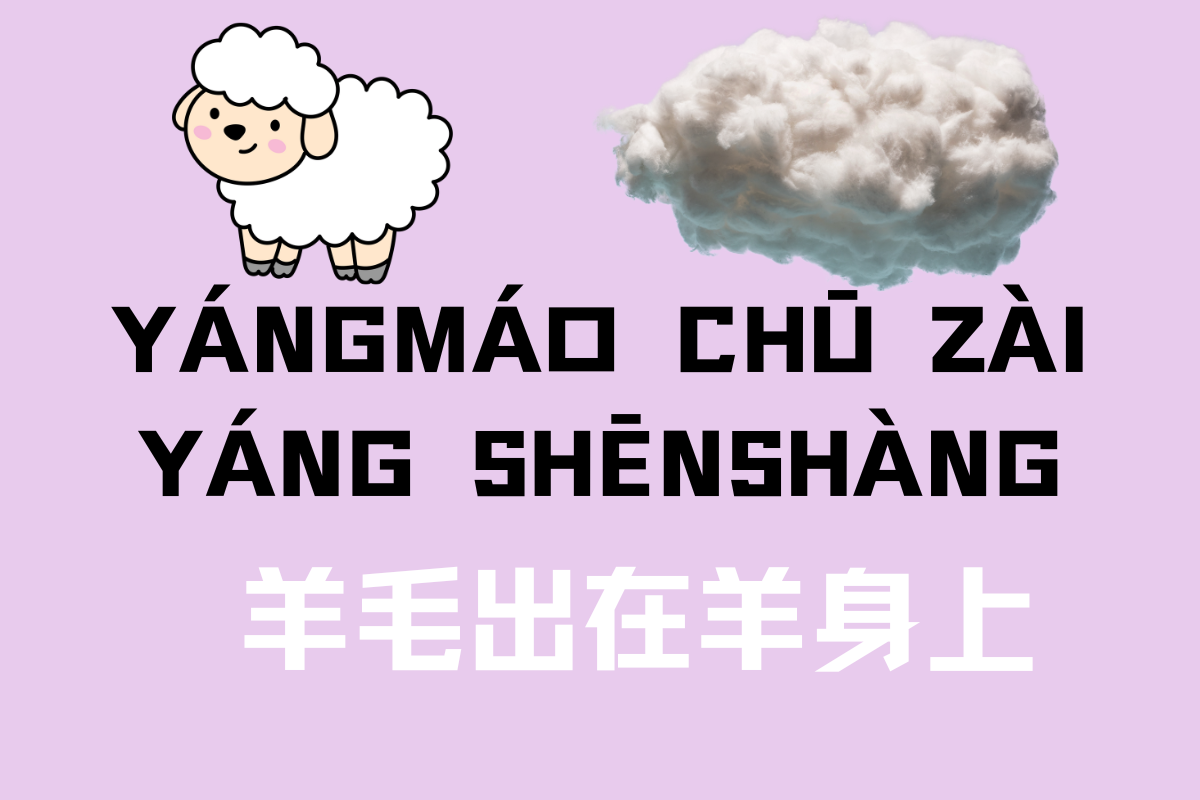The Wool in the Sheep-羊毛出在羊身上(yáng máo chū zài yáng shēn shàng)
Long ago, there was a farmer who owned a flock of sheep. Every year, he would shear the sheep and sell the wool to make money. However, this farmer was not entirely honest. He tried to find ways to keep a bit of extra wool when shearing, hoping to make more money. One year, a friend came to visit the farmer and saw what he was doing while shearing the sheep. The friend said, "Wool comes from the sheep; don't be too greedy." The farmer began to understand this lesson. From that day on, he started shearing the sheep more honestly, not 剥削 (bō xuē) exploiting them but respecting their needs.

剥削 (bō xuē), adj, exploit
Examples:
- Exploiting workers by paying them very low wages is unethical.
以非常低的工资剥削工人是不道德的。
Yǐ fēicháng dī de gōngzī bōxuē gōngrén shì bù dàodé de. - The factory owner was accused of exploiting his workers for long hours.
工厂老板被指控剥削工人长时间工作。
Gōngchǎng lǎobǎn bèi zhǐkòng bōkuò gōngrén cháng shíjiān gōngzuò.
Inspiration of 羊毛出在羊身上(yáng máo chū zài yáng shēn shàng)
This story teaches us an important lesson: honesty and integrity are the foundation of success. Just as wool comes from the sheep, success should be built on fairness, honesty, and respect. Greed and deceit ultimately lead to failure, while honesty and integrity earn trust and success.
Meaning of the Phrase
"羊毛出在羊身上" (yáng máo chū zài yáng shēn shàng) "Wool comes from the sheep" is a Chinese idiom that literally means the wool grows from the sheep's body. Figuratively, it means that everything has its source, and wealth or other benefits come from some form of effort or 原始的 (yuán shǐ de) original source and should not be greedily taken.
原始的 (yuán shǐ de), adj, original
Examples:
- I like the original flavor.
我喜欢原始的味道。
Wǒ xǐhuān yuánshǐ de wèidào. - Her research was groundbreaking because it presented original findings never seen before.
她的研究具有开创性,因为它呈现了以前从未见过的原始发现。
Tā de yánjiū jùyǒu kāichuàngxìng, yīnwèi tā chéngxiànle yǐqián cóngwèi jiànguò de yuánshǐ fāxiàn.
Modern Application
In today's society, the story of "羊毛出在羊身上" (yáng máo chū zài yáng shēn shàng) remains relevant. It reminds people not to seek success or wealth through deception or dishonest means but to rely on their efforts and honesty. This story also serves to educate people on respecting the rights of others and not excessively pursuing personal gain to uphold fairness and morality.
Key Sentences:
- Don't try to get rich by cheating on your taxes; remember, "wool comes from the sheep."
不要试图通过逃税来致富,记住,“羊毛出在羊身上。”
Bùyào shìtú tōngguò táoshuì lái zhìfù, jìzhuì, “yángmáo chū zài yáng shēnshàng.” - You can't expect to pass the exam if you don't study; after all, "wool comes from the sheep."
如果你不学习,就别指望通过考试;毕竟,“羊毛出在羊身上。”
Rúguǒ nǐ bù xuéxí, jiù bié zhǐwàng tōngguò kǎoshì; bìjìng, “yángmáo chū zài yáng shēnshàng.” - To achieve real success in life, always remember that "wool comes from the sheep," and be honest in your efforts.
要在生活中取得真正的成功,永远记住“羊毛出在羊身上”,并诚实努力。
Yào zài shēnghuó zhōng qǔdé zhēnzhèng de chénggōng, yǒngyuǎn jìzhù "yángmáo chū zài yáng shēnshàng", bìng chéngshí nǔlì.